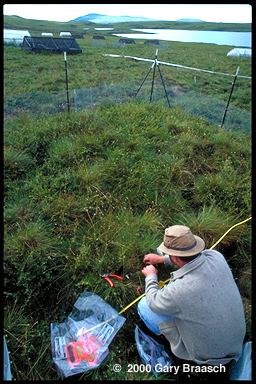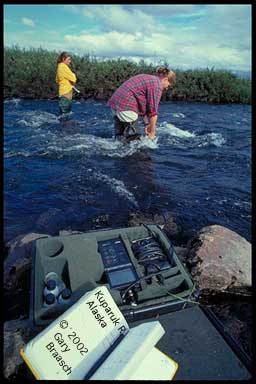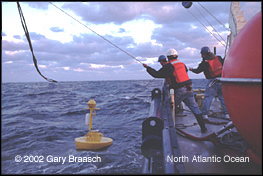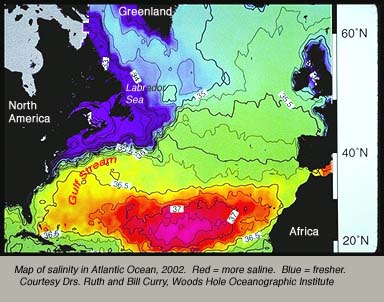
Welcome to global warming awareness 2007.
Well I accidently felt over this seo contest surfing the internet and on normal circumstances I would nerver participate in such at thing as the “global warming awareness 2007” contest, but by clicking around the sites in the contest, I decided that maybe this was right for me.
The thing is that the keywords, global warming, and awareness said something to me, and it hurts me to see some peoples reaction, to this contest and the keywords to it. I was shocked when I visited this site (I wont link to it ) globalwarming-awareness2007.isabloodycloaker dot com) This stupid moran have got this whole thing wrong, because I think that the global warming keywords are a totally great idea. Now you are probably thinking why is that. ?
The world seo championship has here by added a totally new thing to the contest by choosing these keywords, and that new thing is responsibility ! and I bellive that it is time that what all start to take responsibility to our actions in live, and to this contest. it is our responsibility to make our global warming awareness sites as informational as possible on this issue, so that when people surf the net, looking for global warming sites, and they enter one of the sites from this contest, they will get what they have been looking for, and not some crap site written by a totally idiot.
I am not a professor in global warming, but I will tell some of the facts I know, and besides that I will try to collect as much information on the awareness of the global warming, and post it here on this page.
A couple of weeks ago I went down to the gas station in my neigbor hood to rent a film, and on the dvd staples I saw a film called AN INCONVENIENT TRUTH.
I had seen some commercials in the televison for this film, and understood that this was a movie about global warming and on planet crisis. So I thought why not ? And rented it.
And I must admit that I was totally shocked when I saw this film. If you havent seen it I highly recommend that you do ASAP. The movie is made by former Vice President Al Gore, and I must admit that I have become a fan of this man, and his awareness of the global warming situation on our planet earth. The main reason why I was so impressed Al Gore, is that he takes responsibility for the global warming. As I look on Amercia they have always been the good guys (and always make it look that way) especially when it comes to the us government. But in this movie Al Gore speaks straight from his heart, and tells that America is the worst country, when it comes to creating global warming, and pollution in all kinds. And that is what I call taking responsibility, and if we all learn to do that everything will be way easier to manage.
I will be updating this site on a daily basis. If you are a professor or just a person who are aware of the global warming situation and feel that you would like to share something with other people do not hesitate to mail me my mail is elgynventegodt@hotmail.com you are also more than welcome to use the forum. All the best Michael
Global warming is a much disputed issue that can leave the average individual quite confused. Unfortunately, there are no straightforward answers. For those of us who are not scientists, it is easy to be overwhelmed by the contradictions. It is much more convenient to just give the whole thing up and enjoy the weather or not, as the case might be.
However, just because you are not a scientist does not mean that you must be misinformed or uninformed. There is a middle ground where you can get a reasonable perspective on global warming and global climate change.
Climate science is very complicated and the controversy surrounding it is only natural. It is in the nature of science to evolve and change. Through all the debate in climatology, a consensus is now beginning to emerge which accepts that our planet is experiencing the effects of global warming.
The following article gives a brief outline of the history of our planet, its current state, and what you may expect in the near future. The facts listed here are based in climatology.
Greenhouse Effect
Though this term is often tossed around as a problem, the fact is that the greenhouse effect is a natural aspect of the Earth's atmosphere and more than that it is a key component of the climate as we know it today. Left in its natural state ,the greenhouse effect would keep the average temperature at around 59 degrees Fahrenheit (15 degrees Celsius). Without the greenhouse effect, the Earth would probably not support the life we know as the temperature would be 0 degree Fahrenheit (18 degrees Celsius).
The term greenhouse effect comes because the effect is propagated through greenhouse gases with Carbon Dioxide (CO2) forming the biggest contributor. Greenhouse gases trap the heat that the planet receives from the sun ,thereby leading to a livable atmosphere and a stable climate. Carbon dioxide is produced through animal respiration. This mixes into the atmosphere and is absorbed by plants that use photosynthesis and release oxygen. The same oxygen is inhaled by animals and this cycle goes on in perpetuity.
The Human Contribution
Humanity has always relied on fuel of some sort but it is the beginning of the industrial revolution around 1750 that we started burning fossil fuels with utter disregard for consequences. Coal, oil, and natural gas are the popular forms of fossil fuels and all of them, when burned, release CO2 into the atmosphere. Besides CO2, other human activities release other greenhouse gases. Agriculture leads to methane and nitrous oxide excess while aerosol propellants produce CFCs (Chloroflourocarbons) that are directly damaging to the ozone layer. However, when viewed in terms of sheer volume nothing compares to excessive CO2 and its effect on the atmosphere.
At the beginning of the industrial revolution, CO2 had a concentration of 275 parts per million as a global average. Today, that same value stands at 350 parts per million, a staggering 30% increase that is increasing. The second half of the twentieth century has witnessed a further acceleration in this phenomenon.
Data from all over the world shows that the amount of CO2 in the atmosphere is steadily increasing as more and more countries are industrialized.
Global Temperature
Recording temperature at one place is quite easy but how does on figure out the global temperature?
There are temperature records from many locations all over the world that are more than a century old. As is to be expected, these records show a huge variation depending on where the data was recorded. However, between all the confusion there is still the fact that everywhere the temperature seems to have gone up by 1 degree Fahrenheit (or ½ degree Celsius) and this change is most precisely seen since the 2nd half of the 19th century. A 1 degree change may not sound like much but it has some huge effect on global climate.
However, there remains the problem of getting accurate data records from all over the world in order to arrive at a reasonably precise figure for global temperature. Some of the problems in doing this are as follow.
* The thermometer has undergone several changes and today it is far more accurate then it was a century and a half ago. So how reliable are the temperature recordings from back then?
* There is something known as an "urban heat island" effect. This basically involves land use and it is known that land use has an effect on local temperature. Cities are hotter than the surrounding countryside. This means that with urbanization a location might record higher temperatures that are not related to global warming. Locations for data recording change ,so their reliability becomes questionable.
* Most records are maintained in industrialized locations. This is known as a geographical bias.
These factors tend to confuse the whole global warming issue because you never know if the data is reliable or not.
This is why the 1 degree change is not taken from raw data but is adjusted to compensate for these factors.
Climate Models
Climatologists use CGMs (Computer Generated Models) in order to predict the change in global temperature based on an increase in greenhouse gases. The CGMs suggest an increase of 1 degree Celsius that is not so far from the actual increase reported but still double and hence a cause for worry. This discrepancy has been among the leading causes of controversy with global warming.
However, science is an evolving mechanism and newer climate models along with modern observations of changes to the Earth's environment have eliminated the reluctance of most climatologists towards global warming.
It is difficult to ignore the effects of global warming when there is clear evidence for rising sea levels, receding glaciers, migrating plants and animals, dying coral reefs, reduced temperature fluctuations, and unexpected and frequent precipitations. All of these events are being recorded all over the world to varying degrees.
Most climatologists are now of the opinion that we are indeed experiencing the ills of global warming.
The next obvious concern is the expected global climate change and its effect on the environment and on the future of humanity.


 The listing of polar bears as threatened under the U.S. endangered species act will name global warming as the main threat, a first. The reduction of the permanent Arctic sea ice by 14 percent since the 1970s is causing not only feeding and breeding difficulties, but also drownings and apparent cannibalism among bears. The listing should be official by the end of 2007. For more information, see
The listing of polar bears as threatened under the U.S. endangered species act will name global warming as the main threat, a first. The reduction of the permanent Arctic sea ice by 14 percent since the 1970s is causing not only feeding and breeding difficulties, but also drownings and apparent cannibalism among bears. The listing should be official by the end of 2007. For more information, see  Biologist Gus Shaver at one of his experimental plots at Toolik Lake, Alaska, monitors increased birch growth due to experimental fertilization and global warming. Shaver says the results of his experiment suggest that warming eventually will promote the growth of birch at the expense of sedges, forbs, and other plants that caribou and other wildlife favor as food sources. During an initial 15-year study (1981-95, which included the warmest decade on record) the sedge Eriophorum decreased by 30 percent while birch biomass increased, even in control plots. In 2002 Shaver reports the growth of birch has changed the ecology of tundra in some plots by covering and killing moss with large amount of leaf litter.
Biologist Gus Shaver at one of his experimental plots at Toolik Lake, Alaska, monitors increased birch growth due to experimental fertilization and global warming. Shaver says the results of his experiment suggest that warming eventually will promote the growth of birch at the expense of sedges, forbs, and other plants that caribou and other wildlife favor as food sources. During an initial 15-year study (1981-95, which included the warmest decade on record) the sedge Eriophorum decreased by 30 percent while birch biomass increased, even in control plots. In 2002 Shaver reports the growth of birch has changed the ecology of tundra in some plots by covering and killing moss with large amount of leaf litter.  In late 2002, geochemist Bruce Peterson of the Marine Biological Lab in Woods Hole, MA, and his collaborators in the US and Russia, showed that the major rivers of Siberia and Eurasia are discharging much more water now than in the 1930s. This not only meets the predictions of an effect of climate change, but indicates the scale of another source of added fresh water into the Arctic.
In late 2002, geochemist Bruce Peterson of the Marine Biological Lab in Woods Hole, MA, and his collaborators in the US and Russia, showed that the major rivers of Siberia and Eurasia are discharging much more water now than in the 1930s. This not only meets the predictions of an effect of climate change, but indicates the scale of another source of added fresh water into the Arctic.  The interplay of ocean currents in the North Atlantic is very important to climate. Here, between Labrador and Scandinavia, the Gulf Stream brings a huge flow of water from the south, helping warm Europe as it gives up its heat. This water sinks as it cools, to flow back south again in the deep Atlantic. This plunging down of millions of tons of water per second helps propel what has been termed the Great Ocean Conveyor, a system of huge currents transferring heat throughout all oceans and influencing climate.
The interplay of ocean currents in the North Atlantic is very important to climate. Here, between Labrador and Scandinavia, the Gulf Stream brings a huge flow of water from the south, helping warm Europe as it gives up its heat. This water sinks as it cools, to flow back south again in the deep Atlantic. This plunging down of millions of tons of water per second helps propel what has been termed the Great Ocean Conveyor, a system of huge currents transferring heat throughout all oceans and influencing climate.  The northern waters are getting fresher while the southern waters (near equator) are increasing in salinity. Curry says this indicates a change in the climate with more precipitation and ice melt in the north and much stronger evaporation in the south. In other words: "Global warming."
The northern waters are getting fresher while the southern waters (near equator) are increasing in salinity. Curry says this indicates a change in the climate with more precipitation and ice melt in the north and much stronger evaporation in the south. In other words: "Global warming." 


